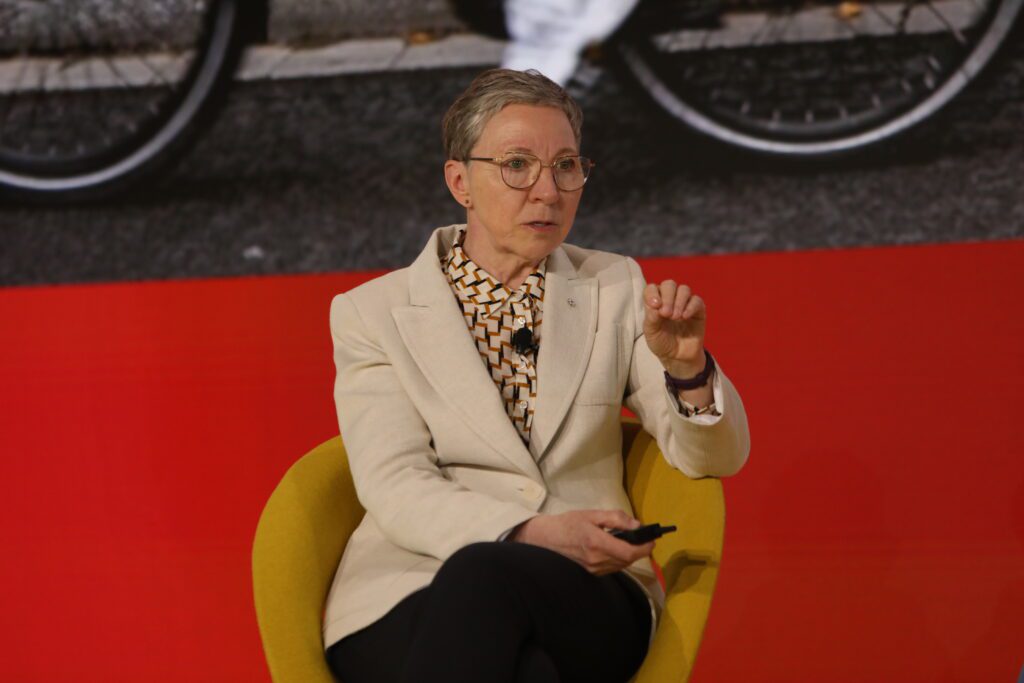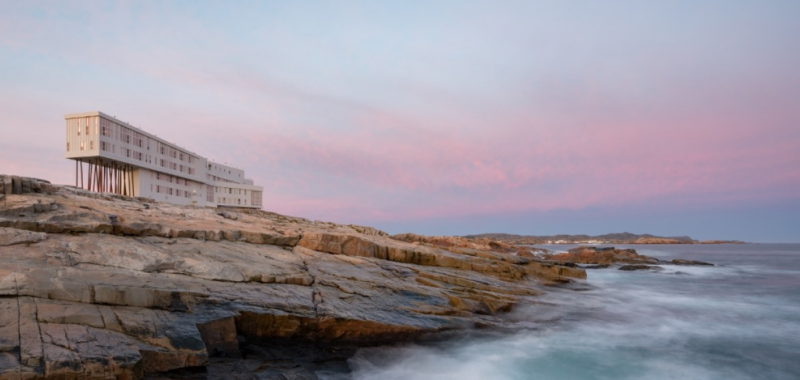Skift Take
The idea of starting with the community rather than tourist demand is an unusual strategy and will be tough to repeat elsewhere. But there’s a lot of potential.
Zita Cobb founded a radically different model of travel when she went home to Fogo Island, Newfoundland, over a decade ago.
To create the Fogo Island Inn, Cobb called on the remote islandâs 2,500 residents to contribute their ideas to boost the local economy with tourism while not disrupting their way of life.Â
The high-end inn has three Michelin keys and was designed to look like a local home on stilts with wood in keeping with the islandâs traditional style. Almost everything in the rooms, from beds to chairs, were made by the people of the island.
âTo understand the architecture of the inn, you have to understand the vernacular architecture of the island,â Cobb said at the Skift Global Forum in New York on Thursday. âWe build out of wood, we built the inn out of wood, as well, and itâs an act of culture, and I think thatâs what travel always needs to be.â
The idea of starting with the community rather than tourist demand is an unusual strategy at a time when people are rising up against the excesses of travel and its effect on locals. Local governments are responding with bans on short-term rentals, caps on visitor numbers and tourist fees and taxes. Cobb argues that the travel industry needs to put the destination and its people first to create sustainable tourism.
âWeâve lost track a little bit of the social and cultural part of the promise of travel which is why it all went wrong,â said Cobb.Â

Zita Cobb, Fogo Island Inn
The construction was funded in part by Cobb and in part with public funds. The inn is owned by Shorefast, a Canadian charity that Cobb set up with her brothers and that is dedicated to helping secure the islandâs economic future.
Cobb, an eighth-generation islander doesnât expect big hotel chains to put ownership in the hands of communities, but does expect that they learn from the radically different model.
The inn, opened in 2013, has 29 rooms, which is the size they figured the islandâs population could handle.
The pushback against tourism is coming because the industry isnât taking responsibility for the impact it is having, said Cobb, a former tech executive, most notably at communications equipment company JDS Uniphase, which no longer exists.
Governments are just waking up to the fact that they need to play a more active role, she said. And communities have to figure out what part they want to take on in welcoming visitors in ways that benefits â and doesnât harm â the community.  Â
Because Fogo Island Inn belongs to the people, they each get to stay there. Shorefast also goes beyond running the hotel â it builds artist studios and owns a fish business and restaurant, among other things. Â
According to Cobb, the hospitality industry has forgotten the people and lost its balance with âtoo much corporateâ and thereâs no choice as communities realize their quality of life has fallen off. Companies have to pay attention because âif they look at it, theyâll see it, and if they donât see it, theyâre going to be forced to see it.â
They need to start with the place, build a global network of intensely local places. âIf we put place at the center, it would change everything,â Cobb said.Â

